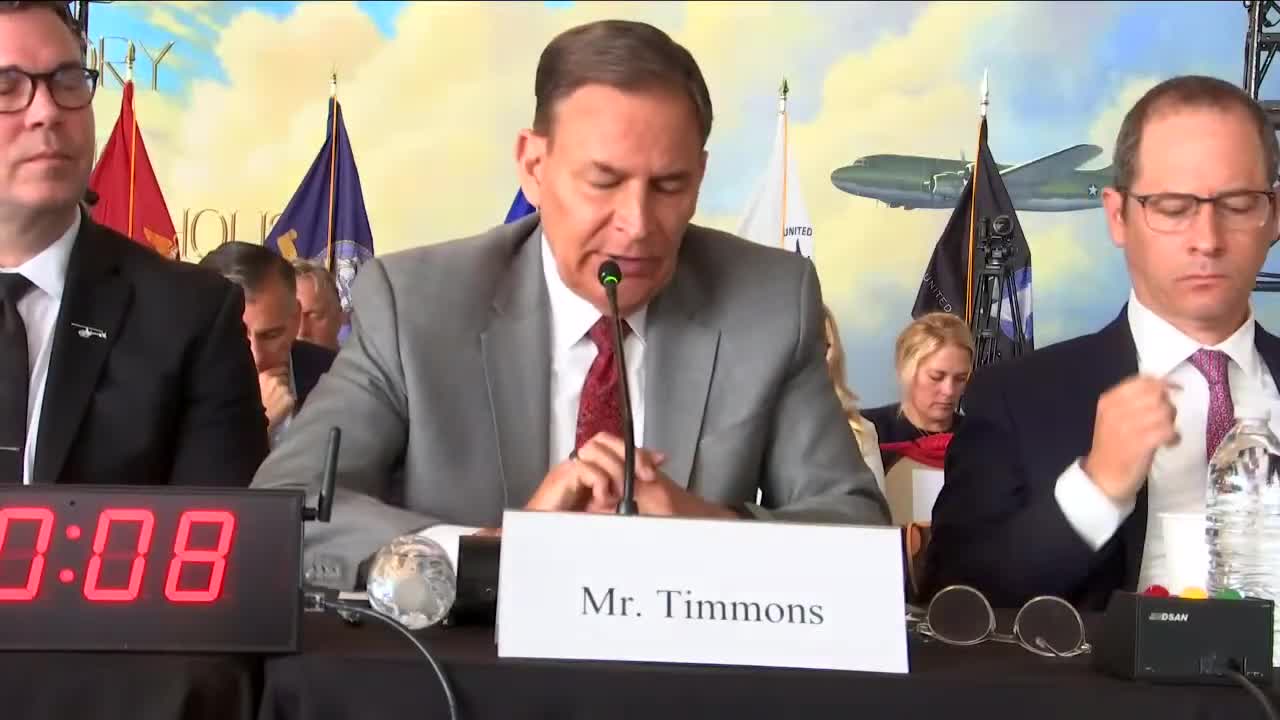Congress Debates Impact of Tariff Policy on California Jobs and Prices
July 27, 2025 | Ways and Means: House Committee, Standing Committees - House & Senate, Congressional Hearings Compilation
This article was created by AI summarizing key points discussed. AI makes mistakes, so for full details and context, please refer to the video of the full meeting. Please report any errors so we can fix them. Report an error »

During a recent Full Committee Field Hearing, the U.S. House Committee on Ways & Means focused on the implications of a significant legislative bill aimed at bolstering the American economy. A key discussion point emerged around the challenges faced by small and medium manufacturers, particularly regarding the rising costs of borrowing. A congressman highlighted that the expiration of a 2017 provision has led to higher interest rates in the U.S., putting American businesses at a competitive disadvantage compared to their global counterparts. Restoring this provision, he argued, would enhance investment capacity, allowing businesses to grow and create jobs.
Conversely, Congresswoman Sanchez voiced strong opposition to the bill, asserting that it would negatively impact Californians. She cited potential losses of Medi-Cal for millions and job cuts in the clean energy sector, claiming the bill would raise costs for everyday Americans, including healthcare premiums and taxes. Sanchez pointed to the rising prices of essential goods, linking them to current tariff policies that have burdened consumers.
The discussion also touched on the broader economic landscape, with concerns raised about the manufacturing sector's reliance on foreign inputs. A representative from the National Association of Manufacturers acknowledged that while tariffs are a concern, a significant portion of critical manufacturing inputs still comes from abroad, complicating the growth of domestic manufacturing.
As the hearing concluded, it was clear that the proposed bill has sparked a heated debate, with advocates emphasizing its potential to stimulate economic growth and critics warning of its adverse effects on consumers and essential services. The committee's next steps will be crucial in determining the bill's fate and its impact on the American economy.
Conversely, Congresswoman Sanchez voiced strong opposition to the bill, asserting that it would negatively impact Californians. She cited potential losses of Medi-Cal for millions and job cuts in the clean energy sector, claiming the bill would raise costs for everyday Americans, including healthcare premiums and taxes. Sanchez pointed to the rising prices of essential goods, linking them to current tariff policies that have burdened consumers.
The discussion also touched on the broader economic landscape, with concerns raised about the manufacturing sector's reliance on foreign inputs. A representative from the National Association of Manufacturers acknowledged that while tariffs are a concern, a significant portion of critical manufacturing inputs still comes from abroad, complicating the growth of domestic manufacturing.
As the hearing concluded, it was clear that the proposed bill has sparked a heated debate, with advocates emphasizing its potential to stimulate economic growth and critics warning of its adverse effects on consumers and essential services. The committee's next steps will be crucial in determining the bill's fate and its impact on the American economy.
View full meeting
This article is based on a recent meeting—watch the full video and explore the complete transcript for deeper insights into the discussion.
View full meeting